Story
CoNorth helps residents take ownership
A model of cooperative ownership for manufactured home communities is expanding what affordable housing can look like
DATE
November 11, 2025
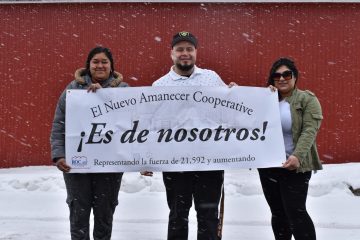
By Mo Perry
In February 2025, Beverly Adrian carried a mason jar of water to a committee hearing at the
Minnesota state legislature. The liquid was a dark, sludgy brown, more like mud than water. It
had come from the well that supplied her manufactured home community — Woodlawn Terrace
in Richfield — before a $2.1 million grant from the state funded the community’s connection to
city water, among other improvements.
Adrian was there to thank the state’s committee on housing and homelessness prevention, and
to show them this blunt exhibit of what residents had to deal with before their help —
undrinkable water, laundry stained yellow after being washed. But the legislature wasn’t the only
entity whose assistance had made the upgrades possible.
In 2020, the Woodlawn Terrace community was at risk of being sold to a new owner. Adrian had
been through an involuntary move before, when the owner of her manufactured home
community in Bloomington abruptly sold the property to a new owner who wanted to build
condominiums on the five-acre lot. The sale forced the displacement of more than 100
residents, including Adrian.1 (Most manufactured home residents own their home but rent the lot
it sits on.)
Adrian wasn’t about to watch the same story unfold at Woodlawn Terrace. She knew about
CoNorth — then called Northcountry Cooperative Foundation — and its support of housing
cooperatives, which enable residents to own and govern their manufactured home communities.
She quickly reached out to their staff. Together, they began organizing her neighbors, laying the
groundwork for residents to purchase the community themselves. Over 16 months of
negotiations with the park’s longtime owner, CoNorth trained a temporary board made up of
Woodlawn Terrace residents and guided them through the complex steps toward conversion. By December 2021, Woodlawn Terrace officially became a resident-owned cooperative.
CoNorth’s help didn’t stop there. They helped the new co-op secure grants and financing for
urgent infrastructure updates, including finally connecting the park to Richfield’s city water
system. CoNorth tracked the finances, helped manage the engineering assessments and
stayed alongside the community as they tackled sewers, paving and lot prep for new homes.
Now, CoNorth is helping the co-op apply for homestead status for property tax purposes. If
successful, they’ll be the first manufactured home community in Minnesota to qualify, lowering
their annual tax bill and strengthening the long-term affordability of the co-op even more.
“CoNorth has been an incredible support system for us,” says Adrian, now president of the
Woodlawn Terrace Cooperative board of directors. “Things keep coming at me that I’ve never
known how to deal with before, but they provide so much guidance and have helped us feel
really prepared.”
Creating opportunity in an affordable housing crisis
Across Minnesota, manufactured housing is one of the last bastions of truly affordable
homeownership. More than 180,000 residents live in manufactured housing communities (MHCs) across 800 parks in 79 of 87 counties. For many families, especially in rural areas and communities of color, these homes are the only feasible path to ownership in a housing market where site-built houses routinely cost more than $300,000. A manufactured home can be purchased for a third of that, with monthly costs averaging 58% less than a traditional mortgage.
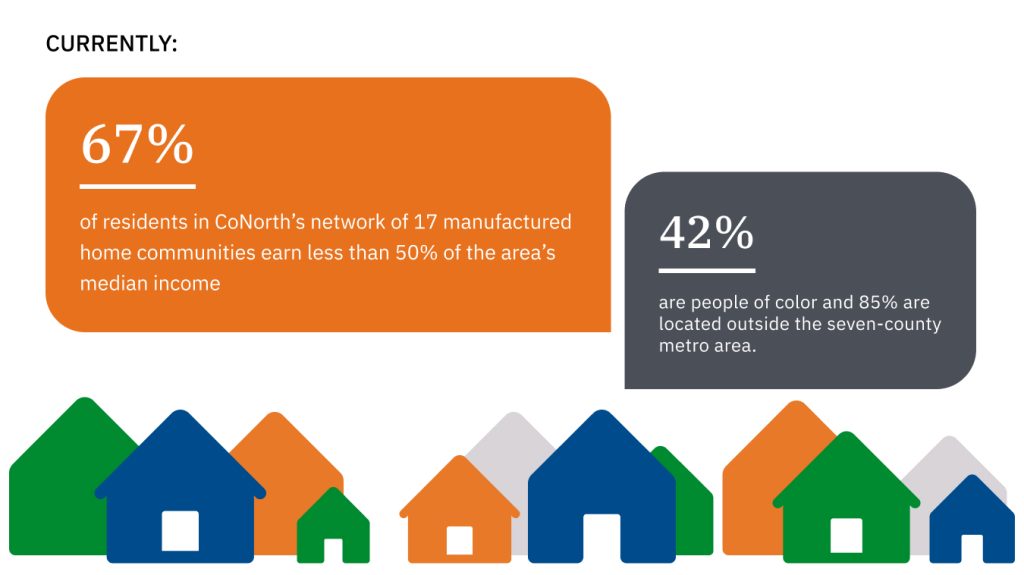
Though technically designed to be moveable, most manufactured homes remain where they’re
initially placed. Moving them is logistically complicated, expensive and risky. “We intentionally
call them ‘manufactured homes’ instead of ‘mobile homes,’” notes CoNorth director of
communications and advancement Amelia Swisher. “Once they’re placed, there’s less than a
1% chance they’re going to move.”
This means that residents who own their homes, but not the land they occupy, are uniquely
vulnerable to the decisions of park owners. Across the country, corporate-owned communities
have reported dramatic rent increases — sometimes up to 60% — alongside deteriorating
conditions. These include frequent water shutoffs, undrinkable water and serious, unresolved
maintenance issues. And aging infrastructure, high lot vacancy rates and low profit margins
have increasingly contributed to the sale of these communities for more lucrative purposes. In
Minnesota, sales of MHCs to out-of-state buyers soared from 46% in 2015 to 90% in 2024.2
The business model is predictable: raise lot rents, skimp on maintenance and extract profits
until infrastructure failure forces a sale — often followed by resident displacement.
The result has been one of the largest quiet losses of affordable housing in the state. In the Twin Cities metro, the number of manufactured home communities has shrunk by half since 2006, with displacement falling hardest on people of color. Latino households, for example, have been shown to face higher rates of eviction and worse living conditions under absentee or private equity landlords.
Enter CoNorth, originally founded in 1999 as Northcountry Cooperative Foundation (NCF). It
started as a supporter and incubator of Minnesota cooperatives and has become one of the first
nonprofit partners in the U.S. to join a national network of resident-owned communities (ROCs).
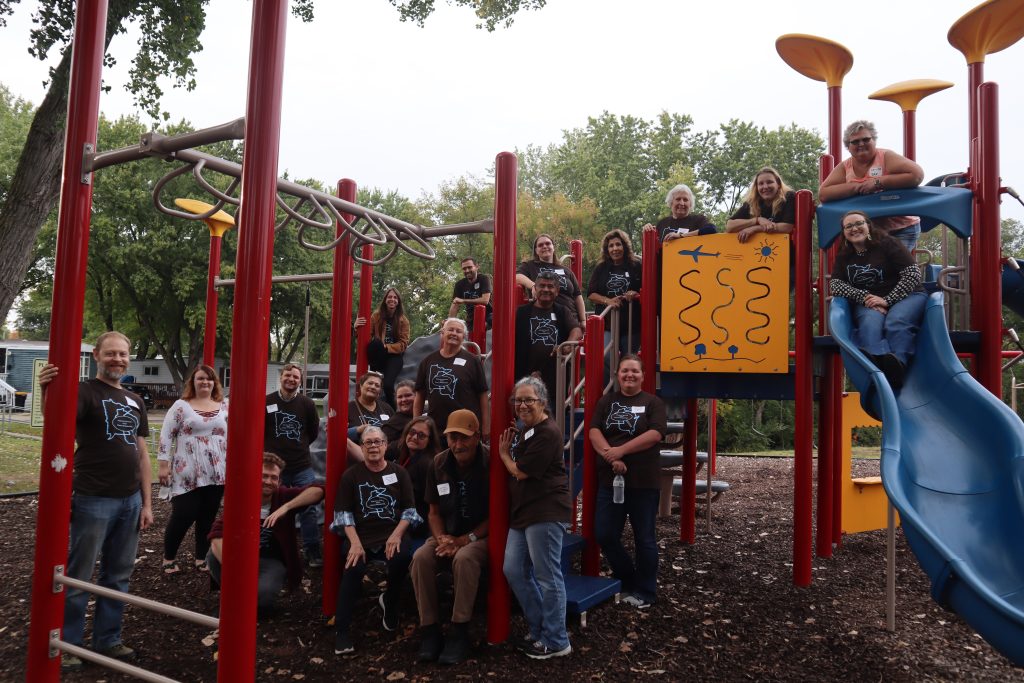
Enter CoNorth, originally founded in 1999 as Northcountry Cooperative Foundation (NCF). It
started as a supporter and incubator of Minnesota cooperatives and has become one of the first
nonprofit partners in the U.S. to join a national network of resident-owned communities (ROCs).
“We found that this asset class really needs this model, because it’s a highly vulnerable
population and a particularly odd setup of owning your home but not the land it’s on,” says
CoNorth executive director Victoria Clark-West. “The cooperative business model is a really
elegant solution to that vulnerability.” Now, CoNorth focuses specifically on housing with its co-
op development work. It’s the only organization in Minnesota actively working to convert MHCs
to cooperative resident ownership.
Investing in communities and cooperative solutions
Since 2004, CoNorth has supported the conversion to ROCs of 17 communities with more than
1,000 homesites, providing not only financing but intensive training for residents in self-
governance and financial management. Two of the communities are in the Twin Cities metro
and two are in Wisconsin, with the majority in greater Minnesota. “There’s a huge need for
affordable housing everywhere, including outstate Minnesota, where developers are not coming
in to develop it,” Swisher says.
The benefits of ROCs are profound. Manufactured homes appreciate in value, building equity
that can be passed down or reinvested. At the same time, cooperative ownership of the land
keeps costs predictable and ensures that the community remains affordable long-term. It also
provides housing flexibility and security for families trying to get a foothold in homeownership for
the first time, as well as seniors downsizing from larger or more expensive housing while
maintaining their independence.
“Access to stable, affordable housing stabilizes individuals, it stabilizes families and it stabilizes communities,” Swisher says. “Having a safe, affordable place to live — where you know you can continue to live 10 years from now — is what creates community.”
In 2023, CoNorth received $10 million from the Minnesota Housing Finance Agency to help cooperatives interested in purchasing their communities. A $4.4 million Community Innovation grant and program-related investment from the Bush Foundation helped them leverage that state funding and further expand their administrative capabilities.
With the help of this funding, CoNorth’s model has now expanded beyond conversions. The
CoNorth Loan Fund provides acquisition loans, second-position loans, lines of credit to fill
vacant lots and infrastructure financing. They’ve also launched CoNorth Homes, a mission-
driven manufactured home dealership exclusively for residents of CoNorth affiliates.
CoNorth Holding, a new entity established in 2025, gives the organization the flexibility to step in
as an interim owner when a community is distressed or when new construction is required. At Renville Manufactured Home Community in Renville, for example, CoNorth Holding is coordinating a full-block revitalization effort to fill 28 long-vacant lots with high-quality, energy- efficient homes. By stabilizing occupancy and restoring revenue, the redevelopment positions the co-op to remain solvent and sustainable until residents are ready to assume full ownership.
“This is a local solution to a national problem, and other communities are using a very similar approach,” Swisher says. Though ROCs currently represent just 2% of all manufactured home communities nationwide, the model is spreading — and gaining bipartisan support. State senator Mark Koran (R—MN) has noted that resident ownership “offers a viable solution to the workforce housing shortage across Minnesota.”
Shifting systems and changing mindsets
CoNorth’s work is also sparking systems-level change. Over the past five years, the
organization has helped drive a wave of policy reforms that are transforming the landscape for
MHC residents in Minnesota. Working with community-based nonprofit allies, they secured a
notice-of-sale law requiring park owners to notify residents that they’re considering an offer to
sell (giving residents an opportunity to make an offer themselves), a five percent tax credit for
owners who sell to residents and new access to Housing Infrastructure Bonds, which can
finance acquisition, construction, rehabilitation and even conversion of cooperative communities
serving low- to moderate-income households.
Municipalities, too, are rethinking their approach. Where zoning barriers once shut out
manufactured housing, local governments are now offering land and infrastructure funding.
CoNorth’s “New North Neighborhoods” initiative in St. Peter, for example, is moving forward with
city-owned land and state bonding dollars.
“In the almost 10 years I’ve been doing this work, I’ve seen a complete 180 in terms of
municipalities’ attitudes toward MHCs,” Clark-West says. Historically, many cities were openly
resistant, thanks to past frustrations with unresponsive, absentee owners. But cities are
increasingly seeing ROCs as partners, and more city officials are seeking partnership with
CoNorth to create more affordable housing in their communities.
Building agency, pride and connection
Nowhere is CoNorth’s impact more clear than in the daily lives of residents, where collective
ownership — and the duties that come with it — build agency, pride and a sense of community.
Adrian recalls the way her neighbors rallied when state officials and financing partners came to
Woodlawn Terrace for a site visit: “I had seven neighbors out here on the weekend trimming,
pruning and weeding. That just wouldn’t have happened if it were owned by some private equity
firm. People didn’t even talk to each other before this. They had no reason to. Now they do.”
Clark-West says it’s always satisfying watching natural leaders emerge within CoNorth’s
network of ROCs.
“Co-op development is people development,” says Clark-West. “We’re cultivating leaders who
are already in the community. They just need a platform to do the things they’re already good
at.”
Susie McMurray, a resident at Raasch Ranch Cooperative in Zumbrota, MN, was initially
skeptical of the plan to convert to an ROC. “I was like, oh gosh, is this really a good idea?” she
recalls. “Then I went to a meeting, and they explained that we’d know where the money we pay
every month is going. Rent wouldn’t go up just because the owner wants more money. We’d be
able to use it to fix things.”
McMurray’s accounting degree made her a natural fit for board treasurer (a role she performs in
addition to working two jobs). CoNorth helped her and her fellow board members learn how to
manage utilities, bills, insurance and bylaws. “We all took positions we’d never had before,”
McMurray says. “All the board members have become much closer. Before we lived our own
lives, but now we all have to work together. There’s a sense of, ‘Hey, this is our park.’”
Clark-West sees cooperatives like Raasch Ranch as an essential element in restoring balance
between the haves and the have-nots. “The way to achieve power parity is having a real stake
and owning something,” she says. “Owning real assets is the key.”
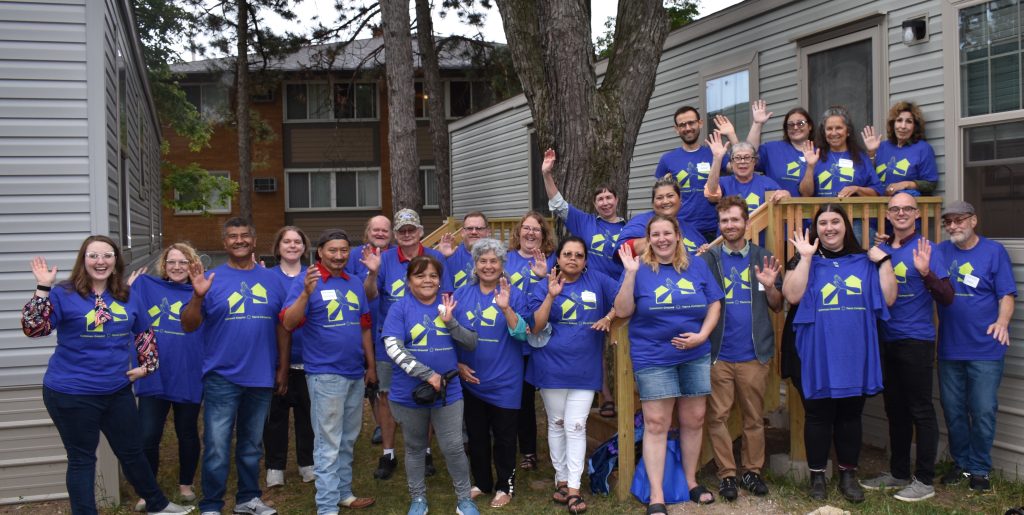
1 https://shelterforce.org/2007/04/23/gaining_ground/
2 https://assets.senate.mn/committees/2025-
2026/3125_Committee_on_Housing_and_Homelessness_Prevention/Manufactured-Home-Park-
Resident-Bill-of-Rights-v3.pdf
Continue reading
-
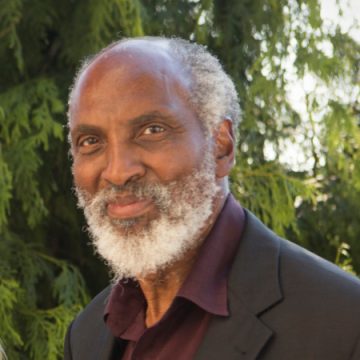
News
Power of Bridging event
Mark your calendars for a special community event with john a. powell! Thanks to our friends at MPR News, we'll be hosting john at the Fitzgerald Theater on December 2 and hope you can join us!
-

News
Celebrating the 2025 Bush Prize honorees
Learn more about the 2025 Bush Prize honorees who are helping to make our region better for everyone!
-
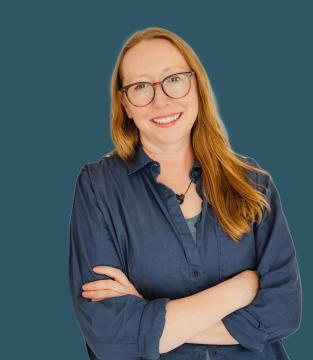
News
Welcome to new Bush staff members
We are celebrating some new Bush colleagues and hope you get to meet them soon!